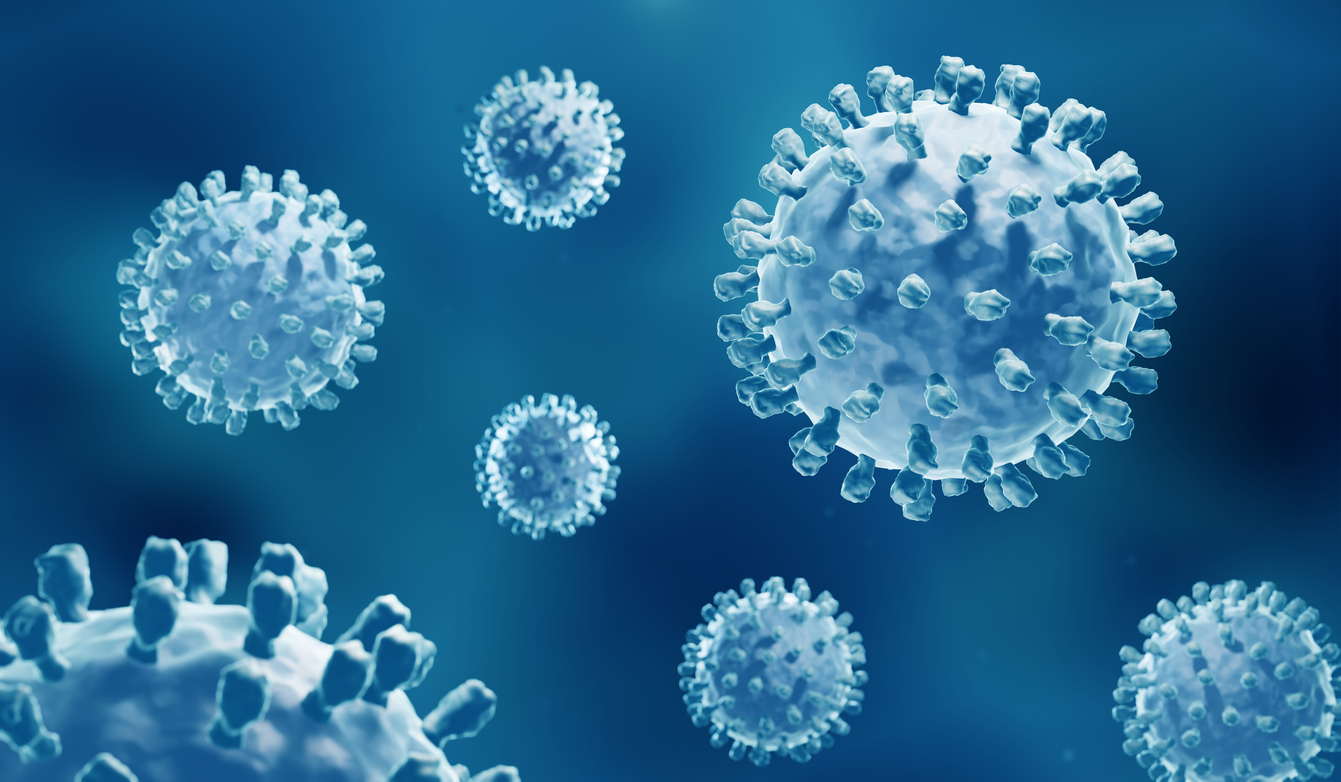2025-02-13
HBsAg and immunity: a barrier or an ally against hepatitis B?
Infectiology
#InfectiousDiseases #Hepatitis #HepatitisB #Immunity #Immunotherapy #Virus
Chronic hepatitis B (HBV) is a persistent viral infection affecting more than 300 million people worldwide. Despite therapeutic advancements, achieving functional cure remains a challenging goal, as current treatments only control viral replication without completely eradicating the infection. One of the main obstacles to this cure is the hepatitis B surface antigen (HBsAg), a protein produced in large quantities by infected cells. Studies suggest that this antigen plays a key role in viral evasion by disrupting the immune response, although the precise mechanisms involved remain unclear.
This study examines the influence of HBsAg levels on anti-HBV immunity. Specifically, it analyzes how this protein affects gene expression and the function of key immune cells involved in viral control:
The objective is to identify how HBsAg modulates these immune responses and explore new strategies to enhance therapeutic approaches aimed at restoring functional immunity against HBV.
Gene expression in immune cells was studied using blood samples and liver biopsies, leveraging single-cell RNA sequencing (scRNA-seq). Researchers analyzed immune cell subpopulations and identified genetic alterations associated with different HBsAg levels.
Patients with low HBsAg levels exhibited a higher proportion of adaptive NK cells (KLRC2+), known for their antiviral role. Conversely, these cells were significantly less prevalent in patients with high HBsAg levels. Additionally, CD8 T lymphocytes (KLRG1+) from patients with low HBsAg levels showed enhanced activation, suggesting a more effective immune response. In the liver, high HBsAg levels were linked to moderate activation of memory B cells but did not cause notable immune suppression.
These findings support the hypothesis that HBsAg directly influences the immune response and may act as a barrier to viral clearance. This study provides new insights into the impact of HBsAg and paves the way for strategies aimed at restoring effective immunity against HBV.
Current therapeutic approaches aiming to eliminate HBsAg are based on the assumption that it induces generalized immunosuppression. However, the precise mechanisms of this immune modulation remain poorly understood. This study sought to analyze how different levels of HBsAg influence gene expression in immune cells responsible for viral control.
The findings suggest that the immunomodulatory effect of HBsAg is highly targeted. Rather than causing global immunosuppression, it selectively affects certain immune subpopulations. Notably, low HBsAg levels are associated with enhanced activation of adaptive NK cells and CD8 T lymphocytes, potentially leading to a more effective immune response against the virus.
This study, conducted on a limited sample size, requires validation in larger cohorts. Furthermore, it does not evaluate the clinical impact of the observed immune alterations, limiting the long-term interpretation of the results. These discoveries challenge the notion that simply reducing HBsAg levels would be sufficient to restore antiviral immunity. Future research should combine HBsAg elimination with immunomodulatory approaches to strengthen immune responses and explore new therapeutic targets for achieving functional HBV cure.
Chronic hepatitis B (HBV) is a persistent viral infection affecting more than 300 million people worldwide. Despite therapeutic advancements, achieving functional cure remains a challenging goal, as current treatments only control viral replication without completely eradicating the infection. One of the main obstacles to this cure is the hepatitis B surface antigen (HBsAg), a protein produced in large quantities by infected cells. Studies suggest that this antigen plays a key role in viral evasion by disrupting the immune response, although the precise mechanisms involved remain unclear.
This study examines the influence of HBsAg levels on anti-HBV immunity. Specifically, it analyzes how this protein affects gene expression and the function of key immune cells involved in viral control:
- Natural Killer (NK) cells, essential for eliminating infected cells;
- CD8 T lymphocytes, responsible for the cytotoxic response;
- Memory B cells, involved in long-term antibody production.
The objective is to identify how HBsAg modulates these immune responses and explore new strategies to enhance therapeutic approaches aimed at restoring functional immunity against HBV.
Read next: Between Gut Microbiota and the Progression of Chronic Hepatitis B
Does HBsAg truly block immunity?
The study analyzed 18 patients with chronic hepatitis B undergoing NUC treatment. Participants were divided into two groups based on their HBsAg levels:- High HBsAg group: 920–12,447 IU/mL
- Low HBsAg group: 1–100 IU/mL
Gene expression in immune cells was studied using blood samples and liver biopsies, leveraging single-cell RNA sequencing (scRNA-seq). Researchers analyzed immune cell subpopulations and identified genetic alterations associated with different HBsAg levels.
Patients with low HBsAg levels exhibited a higher proportion of adaptive NK cells (KLRC2+), known for their antiviral role. Conversely, these cells were significantly less prevalent in patients with high HBsAg levels. Additionally, CD8 T lymphocytes (KLRG1+) from patients with low HBsAg levels showed enhanced activation, suggesting a more effective immune response. In the liver, high HBsAg levels were linked to moderate activation of memory B cells but did not cause notable immune suppression.
These findings support the hypothesis that HBsAg directly influences the immune response and may act as a barrier to viral clearance. This study provides new insights into the impact of HBsAg and paves the way for strategies aimed at restoring effective immunity against HBV.
Rethinking Strategies Against Hepatitis B
HBV remains a persistent viral infection affecting over 300 million people worldwide. Despite therapeutic advancements, current treatments only control viral replication without achieving complete viral eradication. One of the biggest challenges remains immune evasion orchestrated by the virus, largely attributed to the HBsAg antigen. This antigen is suspected of altering the immune response, limiting the effectiveness of existing antiviral strategies.Current therapeutic approaches aiming to eliminate HBsAg are based on the assumption that it induces generalized immunosuppression. However, the precise mechanisms of this immune modulation remain poorly understood. This study sought to analyze how different levels of HBsAg influence gene expression in immune cells responsible for viral control.
The findings suggest that the immunomodulatory effect of HBsAg is highly targeted. Rather than causing global immunosuppression, it selectively affects certain immune subpopulations. Notably, low HBsAg levels are associated with enhanced activation of adaptive NK cells and CD8 T lymphocytes, potentially leading to a more effective immune response against the virus.
This study, conducted on a limited sample size, requires validation in larger cohorts. Furthermore, it does not evaluate the clinical impact of the observed immune alterations, limiting the long-term interpretation of the results. These discoveries challenge the notion that simply reducing HBsAg levels would be sufficient to restore antiviral immunity. Future research should combine HBsAg elimination with immunomodulatory approaches to strengthen immune responses and explore new therapeutic targets for achieving functional HBV cure.
Read next: A New Diagnostic and Prognostic Test for Acute Liver Failure in Chronic Hepatitis B

Last press reviews
Birch allergy: could one shot change everything?

#AllergicRhinoconjunctivitis #IgG4 #Allergoid #BirchPollen #Immunotherap...
Allergies: could the gut hold the key?

#SeasonalAllergicRhinitis #Probiotics #Prebiotics #GutMicrobiota...
Parkinson’s disease: bone health shouldn’t be overlooked

#ParkinsonsDisease #Osteoporosis #FractureRisk #FRAX #Prevention...